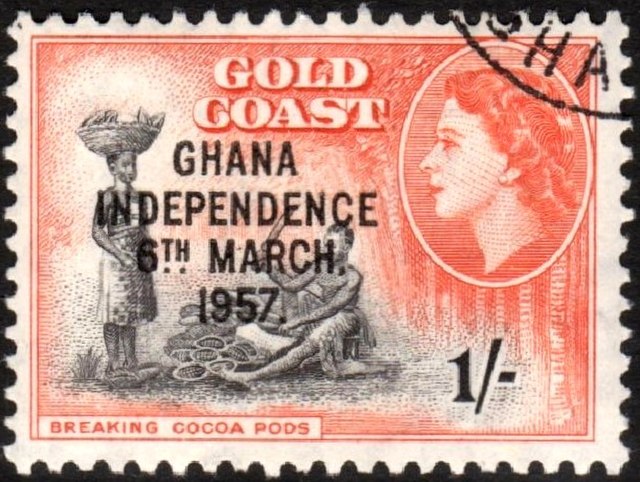Gold Coast (British colony)
The Gold Coast was a British Crown colony on the Gulf of Guinea in West Africa from 1821 until its independence in 1957 as Ghana. The term Gold Coast is also often used to describe all of the four separate jurisdictions that were under the administration of the Governor of the Gold Coast. These were the Gold Coast itself, Ashanti, the Northern Territories protectorate and the British Togoland trust territory.
The Gold Coast in 1922
The First Anglo-Ashanti War
The Portuguese-built Elmina Castle was purchased by Britain in 1873. Also known as St. George Castle, it is now a World Heritage Site
Following the Fourth Anglo-Ashanti War in 1896, the British proclaimed a protectorate over the Ashanti Kingdom.
Ghana, officially the Republic of Ghana, is a country in West Africa. It abuts the Gulf of Guinea and the Atlantic Ocean to the south, sharing a border with Ivory Coast in the west, Burkina Faso in the north, and Togo in the east. Ghana covers an area of 239,567 km2 (92,497 sq mi), spanning diverse biomes that range from coastal savannas to tropical rainforests. With over 32 million inhabitants, Ghana is the second-most populous country in West Africa. The capital and largest city is Accra; other significant cities include Kumasi, Tamale, and Sekondi-Takoradi.
18th-century Ashanti brass kuduo. Gold dust and nuggets were kept in kuduo, as were other items of personal value and significance. As receptacles for their owners' kra, or life force, kuduo were prominent features of ceremonies designed to honour and protect that individual.
The Portuguese established the Portuguese Gold Coast with the construction of Elmina Castle (Castelo da Mina) by Diogo de Azambuja in 1482, making it the oldest European building in sub-Saharan Africa.
A Gold Coast postage stamp overprinted for Ghanaian independence in 1957
Traditional chiefs in 2015







